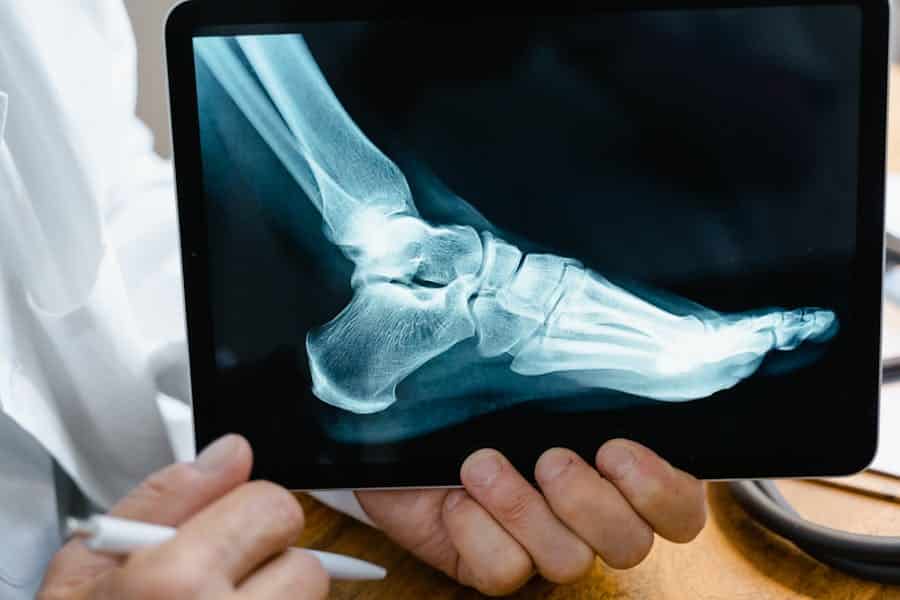
Securing fair compensation in personal injury claims can be a complex process, fraught with potential pitfalls for those unfamiliar with the intricacies of the legal system. An understanding of liability, meticulous documentation, and skillful negotiation are all essential elements in this endeavor. Charting this landscape can be intimidating, yet with the right knowledge and guidance, one can maximize their chances of receiving the compensation they rightly deserve. This discussion will further explore these critical aspects, shedding light on the path to successful compensation claims.
Understanding Personal Injury Claims
One might find themselves unexpectedly embroiled in a personal injury case, without a clear understanding of what it entails. At the core, a personal injury claim is a legal dispute that arises when one person suffers harm from an accident or injury, and someone else might be legally responsible for that harm. These cases can lead to formal civil court proceedings, or be resolved through an informal settlement.
A common misconception is that personal injury claims only cover physical injuries. In reality, the types of injuries that can be subject to these claims encompass physical, psychological, and emotional harm. Examples can range from injuries sustained in a car accident to emotional distress caused by harassment or discrimination.
Understanding the scope of personal injury law is essential to guarantee that you adequately protect your rights and interests. It’s important to remember that each case is unique, and the types of injuries, circumstances, and applicable law can vary greatly. Consulting with a skilled personal injury attorney can be invaluable in successfully maneuvering the complexities of these claims. Let’s debunk common misconceptions, understand the types of injuries, and equip ourselves to navigate the legal landscape effectively.
Determining Liability in Accidents
Having explored the concept of personal injury claims, it is equally important to have an understanding of how liability is determined in accidents. This process involves a thorough analysis of the causal factors contributing to the accident and a detailed negligence assessment of all parties involved.
Causal factors are vital elements in establishing liability. These are the specific events or conditions that directly led to the accident. For example, in a motor vehicle collision, causal factors could include reckless driving, malfunctioning traffic signals, or hazardous road conditions. Each causal factor is meticulously examined to ascertain its role in the accident.
A negligence assessment then applies to these causal factors. This evaluation determines the degree to which each party failed to exercise reasonable care, thereby contributing to the accident. For instance, if a driver ignored a red light, this act of negligence would be a significant factor in determining liability.
Understanding the process of determining liability is essential for those pursuing personal injury claims. As the claimant, you must be able to convincingly demonstrate that the other party’s negligence was a primary cause of the accident, thereby establishing their liability and strengthening your claim for compensation.
Documenting Your Injuries
In the domain of personal injury claims, accurately documenting your injuries is an essential step in the process. The importance of this task cannot be understated, as it forms a vital part of your claim’s evidence to substantiate your demand for compensation. In this section, we will guide you through the necessary steps to guarantee that your injuries are properly documented, thereby enhancing the credibility and strength of your claim.
Importance of Injury Documentation
While it may seem overly meticulous, diligently documenting your injuries after an accident is of utmost importance. It is through this documentation process that a vivid, irrefutable picture of the incident is painted, potentially increasing the chances of successfully pursuing a personal injury claim.
Medical records play a vital role in this process. They serve as factual evidence of your injuries, the severity, the treatment you received, and the ongoing medical attention required. These records, often provided by hospitals or your personal doctor, give an authoritative account of the physical harm sustained.
Photographic evidence complements medical records and is equally significant. Photos can depict the immediate aftermath of the accident, showing tangible proof of your injuries. They offer a visual representation that words sometimes fail to express, making them a powerful tool when seeking compensation.
Steps for Proper Documentation
Pursuing a personal injury claim necessitates an exhaustive and careful documentation of your injuries. This process involves multiple steps to guarantee that your claim is supported by convincing evidence. The first vital step is the immediate gathering of witness statements. These accounts provide an unbiased perspective of the incident, substantiating your claim.
Next, medical records play an indispensable role. Right after an incident, it’s important to seek medical attention irrespective of the apparent severity of your injury. This not only safeguards your well-being but also officially documents the injuries sustained, creating a medical record.
Further, make certain to track all your medical bills, prescriptions, therapy sessions, and any other related expenses. This detailed record will be instrumental in determining the rightful amount of compensation. Equally important is to photograph your injuries regularly. Visual evidence can dramatically enhance the credibility of your claim.
Lastly, keep a personal journal to record your physical and emotional struggles post-incident. This can serve as powerful evidence of the pain and suffering you’ve endured. To sum up, meticulous documentation is the cornerstone of a successful personal injury claim. It not only substantiates your claim but also maximizes your potential compensation.
Valuing Your Claim
Understanding the value of your personal injury claim is a critical step in your pursuit for just recompense. The process of claim assessment involves various elements that can impact the final compensation amount. These factors include the nature and severity of your injuries, loss of income, the cost of medical treatment, and the impact on your quality of life.
An accurate injury evaluation is essential in this process. The extent of your injuries, the length of your recovery, and any potential long-term effects are taken into account. A detailed medical report outlining these factors can greatly influence the value of your claim.
It’s also important to take into account non-economic damages, such as pain and suffering. These damages are often subjective and can vary greatly from case to case. While it may be difficult to assign a monetary value to these elements, they are integral to your overall claim.
Hiring a Personal Injury Lawyer
After evaluating the value of your personal injury claim, you may find the complexity of the process overwhelming. This is where the importance of choosing representation comes to the forefront. Hiring a personal injury lawyer can provide much-needed support and expertise.
The lawyer will assist in traversing the legal landscape, guaranteeing that your rights are protected and that you receive fair compensation through personal injury claims. However, selecting the right lawyer involves more than just picking a name from a directory. It requires careful consideration and a thorough legal consultation.
To aid in this critical decision-making process, consider the following factors:
- Experience: Confirm the lawyer has extensive experience in personal injury law and a successful track record of winning cases.
- Reputation: A lawyer’s reputation can provide added value to your case and impact the opposition’s resolution strategy.
- Focus: The focus of the lawyer’s practice can make a significant difference in the outcome of your case. A lawyer specialized in personal injury claims will have unique skills for determining liability and accurately valuing compensation.
- Personality: Your lawyer’s personality should align with yours for a comfortable and productive working relationship.
Negotiating With Insurance Companies
Although you have engaged a lawyer to handle your personal injury claim, it is vital to understand the negotiation process with insurance companies. Recognizing insurance tactics and knowing effective settlement strategies can greatly influence the outcome of your claim.
Insurance companies typically employ experienced adjusters to minimize payouts. These professionals are adept at using various tactics, including delaying the claim, questioning the severity of your injuries, or even denying liability altogether. To counter these tactics, being proactive, thorough, and patient is significant. Provide all necessary documentation promptly, stay consistent with your medical treatments, and maintain detailed records of your injury-related expenses.
Settlement strategies often involve calculating a fair compensation based on your damages, pain, and suffering. Your attorney will typically initiate negotiations by sending a demand letter outlining your claim. The insurance company may counter with a lower offer, triggering a series of negotiations. It is important not to accept the first offer immediately; instead, have your lawyer negotiate a more equitable settlement.
Understanding these strategies provides better control over your claim process, which can ultimately lead to a more favorable settlement. Keep in mind that negotiations can be complex and time-consuming, but with patience and strong legal representation, you can effectively navigate this significant stage.
Preparing for Court Proceedings
Maneuvering the labyrinth of court proceedings requires an all-inclusive preparation strategy, which can greatly influence the outcome of your personal injury claim. The courtroom is a world of its own, with specific rules and procedures, and it is crucial to understand courtroom etiquette. Part of this preparation involves witness preparation, an integral aspect to presenting a compelling case.
A thorough strategy should include:
- Understanding Courtroom Etiquette: This involves knowing how to address the court, where to stand, and when to speak. A well-mannered presence can earn respect and credibility.
- Witness Preparation: This includes preparing any witnesses for what to expect during the trial. They should be familiar with the questions they’ll be asked and understand the importance of their truthful testimony.
- Familiarizing Yourself With Procedures: Being aware of how court proceedings unfold can alleviate anxiety and help in being prepared for each stage of the trial.
- Seeking Legal Guidance: Legal professionals can provide valuable advice and guidance on how to navigate the court proceedings, which can greatly increase your chances of a successful claim.
Adequate preparation can lead to a more favorable outcome, underlining the importance of being ready for court proceedings in a personal injury claim.
Maximizing Your Compensation Payout
Maximizing your compensation payout in personal injury claims is both an art and a science. It requires a deep understanding of the legal framework, strong negotiation skills, and an ability to convincingly demonstrate the extent of your injuries and their impact on your life.
The emotional impact of an injury is an essential factor that courts consider when determining compensation. This includes psychological trauma, stress, and anxiety that you may have suffered as a result of the incident. Expressing these feelings in a compelling manner can greatly increase the amount of compensation you receive.
Financial recovery is another critical element of the compensation process. It’s not just about covering your immediate medical expenses. It also pertains to future medical costs, loss of earnings due to inability to work, and other expenses that you may incur as a result of your injury. A detailed financial analysis can provide a clear picture of the monetary implications of your injury, strengthening your claim further.
Strategically leveraging these aspects can help maximize your compensation payout. It’s not easy, but with the right legal guidance, you can effectively navigate this process and guarantee you get the fair compensation you deserve.
Frequently Asked Questions
What Is the Typical Timeline for a Personal Injury Claim Process?
The typical timeline for a personal injury claim process, also known as claim duration, varies. It largely depends on the complexity of the case and the length of settlement negotiations, usually ranging from several months to years.
How Does a Pre-Existing Condition Affect My Personal Injury Claim?
Pre-existing conditions can impact your personal injury claim considerably. They may reduce your compensation if it’s determined that the condition contributed to your injury severity or recovery time. Consult with an attorney for specific advice.
Can I Still Claim Compensation if the Accident Was Partially My Fault?
Yes, you can still claim compensation even if the accident was partially your fault. This falls under the concept of comparative negligence, where fault percentages are assessed and compensation is reduced accordingly.
What Happens if the Person Responsible for My Injuries Has No Insurance?
If the liable party is uninsured, pursuing compensation may seem challenging. However, you can make a claim against your own uninsured motorist coverage or seek compensation from other assets of the person responsible for your injuries.
Can Emotional Distress Be Included in the Personal Injury Compensation?
Yes, emotional distress is often incorporated as a key component in personal injury compensation. Its inclusion recognizes the psychological impact of an injury, thereby expanding the compensation factors beyond just physical harm.





